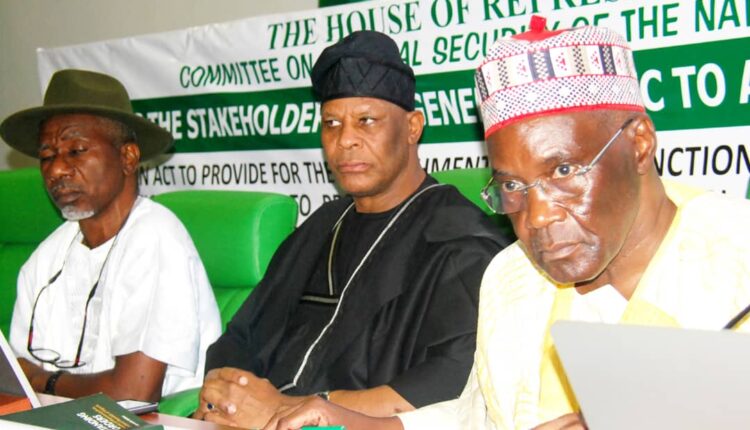States, Stakeholders Support Legislative Security Bill Despite Police Reservations
By Fatima Ndagi, Abuja
State Houses of Assembly and key stakeholders have expressed strong support for the proposed Legislative Security Directorate in the National Assembly — though some security agencies, including the Police, have voiced caution over possible overlap with existing structures.
The positions were made known on Tuesday at a public hearing organized by the House Committee on Internal Security on A Bill for an Act to Establish the Legislative Security Directorate in the National Assembly and for Related Matters, 2024 (HB 1632).

Committee Chairman, Hon. Garba Ibrahim Muhammad, said the Bill seeks to strengthen institutional security within the legislature, which faces rising incidents of theft, vandalism, and unauthorized access.
He noted that the proposal aims to “adopt global best practices in parliamentary security management and create a comprehensive framework to safeguard legislative operations.”
Representing the Inspector-General of Police, AIG Emmanuel Aina cautioned that creating a new Directorate could lead to “overlapping mandates and duplication of functions already handled by existing agencies.”
The Nigeria Security and Civil Defence Corps (NSCDC) shared similar reservations, arguing that in many democracies, legislative security is coordinated under the police or a designated agency, with the Sergeant-At-Arms serving primarily as an administrative head.
Despite these concerns, several State Assemblies and legislative bodies endorsed the Bill.
The Nasarawa State House of Assembly, represented by Deputy Clerk Paul Samuel, described it as “timely and necessary to professionalize and secure the legislature.”
Similarly, Kano and Plateau State Assemblies, represented by Hon. Tukur Muhammed and Deputy Sergeant-At-Arms Sokowar John respectively, backed the Bill in full.
The Parliamentary Staff Association of Nigeria (PASAN) also threw its weight behind the proposal, with its President, Comrade Mohammed, declaring “total support for the establishment of the Directorate.”
Clarifying concerns on whether the new Directorate’s personnel would be armed, the Sergeant-At-Arms of the National Assembly explained that only trained and authorized officers would handle weapons, in line with existing security protocols.
He stressed that, “Our personnel undergo specialized training and have demonstrated professionalism in collaborating with other security agencies within the National Assembly complex.”

